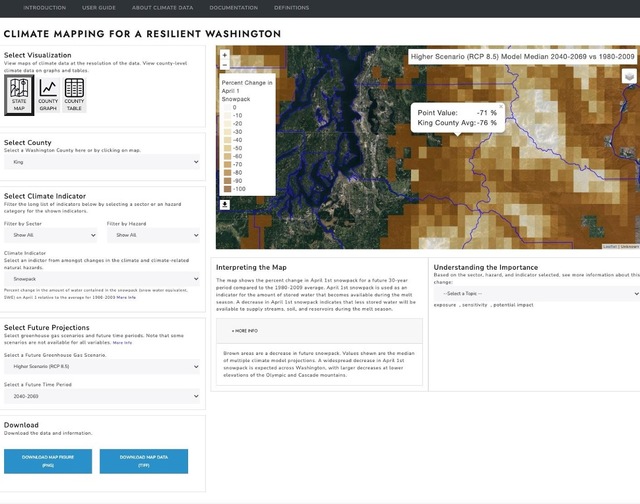Keynote Address
Climate Mapping for a Resilient Washington
Matthew Rogers, Climate Impacts Group at University of Washington Seattle.
With both current and impending climate change, it’s imperative for local government in Washington to state to learn and adapt to the projected impacts like reduced snowpack and increased extreme precipitation. Relying on the internal expertise of the Climate Impacts Group (CIG) at the University of Washington and feedback from multiple state agencies and partners, CIG has compiled and curated the best available climate change projection data into a web application. This application allows local governments and planners to explore and download projected climate change impact data geographically, temporally, and under multiple different future greenhouse gas emission scenarios. In this talk, I will outline the problem that this web application addresses, the process for creating the tool, and demonstrate several of the novel functions that set it apart from other tools like it.
Matthew Rogers is a research scientist with the Climate Impacts Group at the University of Washington, specializing in the latest data and data science methods for analyzing climate projection data. He holds both a B.S. in Atmospheric Science from the University of Washington and M.S. in Meteorology from the University of Oklahoma.
Link to the web application: https://cig.uw.edu/resources/analysis-tools/climate-mapping-for-a-resilient-washington/
